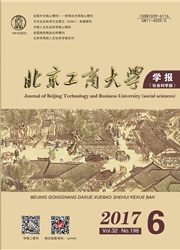

 中文摘要:
中文摘要:
美元的全球中心货币地位使美联储货币政策具有显著的外部溢出效应,其政策退出和政策正常化会通过国际资本流动、汇率和进出口渠道对新兴经济体产生影响,文章尝试评估了美国QE政策退出对我国经常账户的影响。基于符号限制的贝叶斯VAR模型的研究结果表明,美联储QE政策退出会导致我国经常账户顺差减少,并且影响持续时间相当长,表明我国同样面临与其他新兴市场国家相同的危机前兆。因此,政府需要转变发展方式,扩大内需;实施创新驱动战略,提高本国企业和产品在国际市场上的竞争力;同时逐步放开资本项目管制,构建稳定人民币汇率的“池子”机制,严格控制外债规模以及积极参与区域和全球金融安全网建设。
 英文摘要:
英文摘要:
Since the US dollar serves as world currency, the Federal Reserve's monetary policy exerts significant spillover effects, and its QE exit and monetary policy normalization will affect emerging economies through international capital flow, ex- change rate and import & export channels. In this paper, we attentively assess the impact of US QE exit on Chinese current account. Based on Bayesian VAR model with sign restriction, this paper shows that Federal Reserve's QE exit will persistently decrease Chinese current account surplus, which indicates that China faces the same precursors of crisis as those faced by other emerging economies. Therefore, Chinese government needs to transform the development pattern in order to enhance the internal demand, implement the innovation strategy to enhance the competitiveness of the domestic product and domestic enterprise in the international market. Meanwhile, the government needs to relax capital project control in a gradual way, build up stable "pool" mechanism of RMB exchange rate, strictly control foreign debt level and actively participate in regional and global financial safety net.
 同期刊论文项目
同期刊论文项目
 同项目期刊论文
同项目期刊论文
 期刊信息
期刊信息
